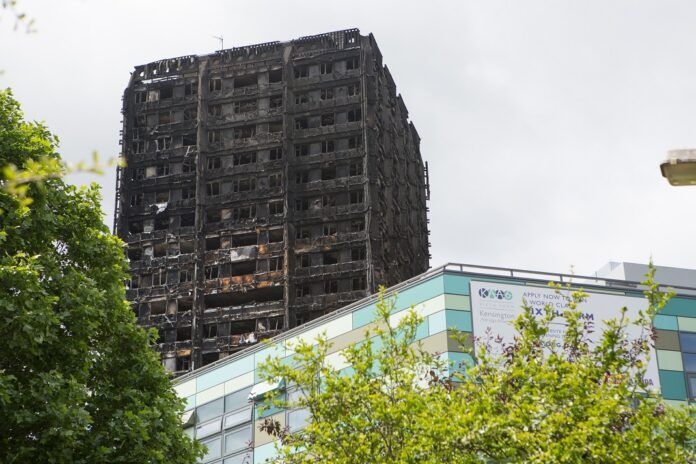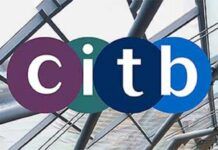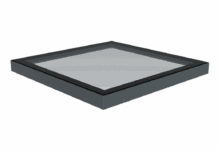The construction sector has reacted to the government’s final report on the Grenfell Tower disaster, which found a number of failures across both government and private institutions which led up to the fire.
The Inquiry reported of “systematic dishonesty”, with American cladding manufacturer Arconic found to have “deliberately concealed” the level of safety for its product used as a rainscreen barrier on the building.
Fire tests showed the solution performed poorly but Arconic did not inform the BBA, which then made statements which the manufacturer knew were “false and misleading”.
The inquiry also noted the two firms which made the insulation in the build up of the system – Celotex and Kingspan, which supplied only 5% of insulation.
In response to the Inquiry, Celotex and Kingspan have released full statements below:
Celotex: “The publication of the Grenfell Tower Inquiry Report marks the conclusion of the Inquiry’s work and we are considering its contents with care.
“Our business’ response to what happened started immediately after the fire in June 2017. We conducted our own review to interrogate the circumstances in which the RS5000 product had been tested, launched and marketed. This review was a significant and thorough undertaking, and the results of that work were disclosed promptly and proactively to relevant stakeholders, including the Grenfell Tower Inquiry.
“Independent testing commissioned following the review demonstrated that the cladding system described in the Celotex RS5000 marketing literature met the relevant safety criteria. That system was substantially different to that used at Grenfell Tower. Decisions about design, construction and the selection of materials for the Tower were made by construction industry professionals.
“Since the fire, we reviewed and improved process controls, quality management and the approach to marketing within the Celotex business to meet industry best practice. Celotex Limited continues to cooperate fully with all official investigations into the Grenfell Tower fire.
“We reiterate our sympathies to everyone affected by the fire.”
Kingspan: “Today is another extremely difficult day for the relatives and survivors of the Grenfell Tower fire and we extend our deepest sympathies to those impacted by the tragedy.
“We welcome the publication of today’s report which is crucial to a public understanding of what went wrong and why. It explains clearly and unambiguously that the type of insulation (whether combustible or non-combustible) was immaterial, and that the principal reason for the fire spread was the PE ACM cladding, which was not made by Kingspan.
“Kingspan has long acknowledged the wholly unacceptable historical failings that occurred in part of our UK insulation business. These were in no way reflective of how we conduct ourselves as a Group, then or now. While deeply regrettable, they were not found to be causative of the tragedy.
“Kingspan has already emphatically addressed these issues, including the implementation of extensive and externally-verified measures to ensure our conduct and compliance standards are world leading.
“We remain committed to playing a leading role in providing safe and sustainable building solutions, including continuing to work with government and industry partners.”
Government
An addition to the manufacturers, the inquiry has also blamed the Royal Borough of Kensington and Chelsea’s Tenant Management Organisation, which ran the social housing, and the contractors who handled the building’s refit “poorly”.
The 2010 coalition government which looked to cut red tape was also partially blamed for the thinking in government that “even matters affecting the safety of life were ignored, delayed or disregarded.”
Recommendations
The Inquiry called for several recommendations such as a review of the Building Safety Act 2022’s definition of a high risk building, suggesting that the current definition – a building 18m in height – is inadequate, arbitrary and should be reviewed not on height but “so that the safety and resilience of a building is prioritised.” It also said the government should draw together under a single regulator all the functions relating to the construction industry to address functions of the build which remain “dispersed”.
The inquiry also recommended that it be made a legal requirement for the government to maintain a publicly accessible record of recommendations made by select committees, coroners and public inquiries together with a description of the steps taken in response after finding that previous recommendations regarding fire safety were ignored by the government in the years leading up to the disaster.
The report also called for a licensing scheme operated by the construction regulator be introduced for principal contractors wishing to undertake the construction or refurbishment of higher-risk buildings and that it be a legal requirement that any application for building control approval for the construction or refurbishment of a higher-risk building (Gateway 2) be supported by a personal undertaking from a director or senior manager of the principal contractor to take all reasonable care to ensure that on completion and handover the building is as safe as is required by the Building Regulations.
Industry reaction:
FMB
Brian Berry, chief executive of the Federation of Master Builders (FMB), said: “While the nation’s local builders are, for the most part, far removed from work that has been investigated as part of the Grenfell Tower Inquiry, it does not mean they are precluded from improving industry standards. Domestic builders do not have minimum competence levels; they are not a protected profession like plumbers or electricians. If industry and government are serious about delivering competence, then introducing minimum standards for entry into domestic building work is a must – this is competence from the ground up.
“The new government needs to turn away from a culture of cutting regulation, which in part has led to poor building safety, and license domestic builders, underpinning the building regime with minimum standards. Why should homeowners not share in the safety net implemented post-Grenfell? Without minimum standards, unregulated or ‘dodgy’ building work will continue, and the industry will not shake off its poor reputation, which is driven by rogue operators plying their trade free from consequence.
“However, where government has tried to regulate domestic builders, through the Building Safety Act, mostly for work involving building control, they have only outlined high level requirements without any underpinning competence. This has left builders confused and worried about committing to work they feel they may no longer be competent to do. The new Government must address this immediately, so industry has clear guidance.”
CLC
The Construction Leadership Council (CLC) issued a statement saying: “[It] has welcomed publication today of the Grenfell Tower Inquiry’s final report. The Inquiry’s findings are a serious and comprehensive reflection of the worst of UK construction’s culture and practices; which led to a tragedy that should and could have been avoided. We fully respect those findings and offer our sympathies and condolences to the families and wider Grenfell community.
“The Inquiry has also put forward a number of recommendations for both our industry and government, to ensure that such a tragedy is never repeated. The CLC, as the representative body for the entire UK construction industry, will now study these recommendations and engage with industry and the Government as to how they can be taken forward through our ongoing work on building safety.
“Over the past seven years the CLC and its many members have made building safety one of our highest priorities, actively working to learn from the failures at Grenfell and reform our culture, behaviours and competence. Whilst progress has been made, we know that more work can and should be done to fulfil the CLC’s ambition of establishing an industry that can be trusted to deliver safe and high quality buildings for those who live and work in them. We remain fully committed to this goal.”
Slater and Gordon
Emma Wilson, principal lawyer at Slater and Gordon, representing multiple families in the Grenfell Inquiry, said: “This morning the long awaited Phase 2 Grenfell Tower Inquiry Report was published. In his remarks introducing the report, Sir Moore-Bick, the Chairman said: the simple truth is that the deaths that occurred were all avoidable and those who lived in the tower were badly failed over a number of ways and in a number of different ways by those who were responsible for ensuring the safety of the building and its occupants.
“The recommendations made, to prevent such a disaster happening again, include simplification of construction regulations and creating of a single independent body headed by a Construction Regulator, who would report to a single Secretary of State and that support is provided by a Chief Construction Advisor to the Secretary of State. Recommendations across other areas include creation of an independent college of Fire and Rescue to provide fire service training to nationally approved standards. A recommendation with regard to personal emergency evacuation plans (PEEPs) is reiterated.
“Given the failure to respond to earlier recommendations made, we are pleased to see the recommendation that the government be legally required to maintain a publicly accessible record of recommendations made by select committees, coroners and public inquiries together with a description of the steps taken in response. We would suggest that this goes further, with the implantation of a National Oversight Mechanism and the creation of an independent public body who would be responsible for following up the recommendations made.”




